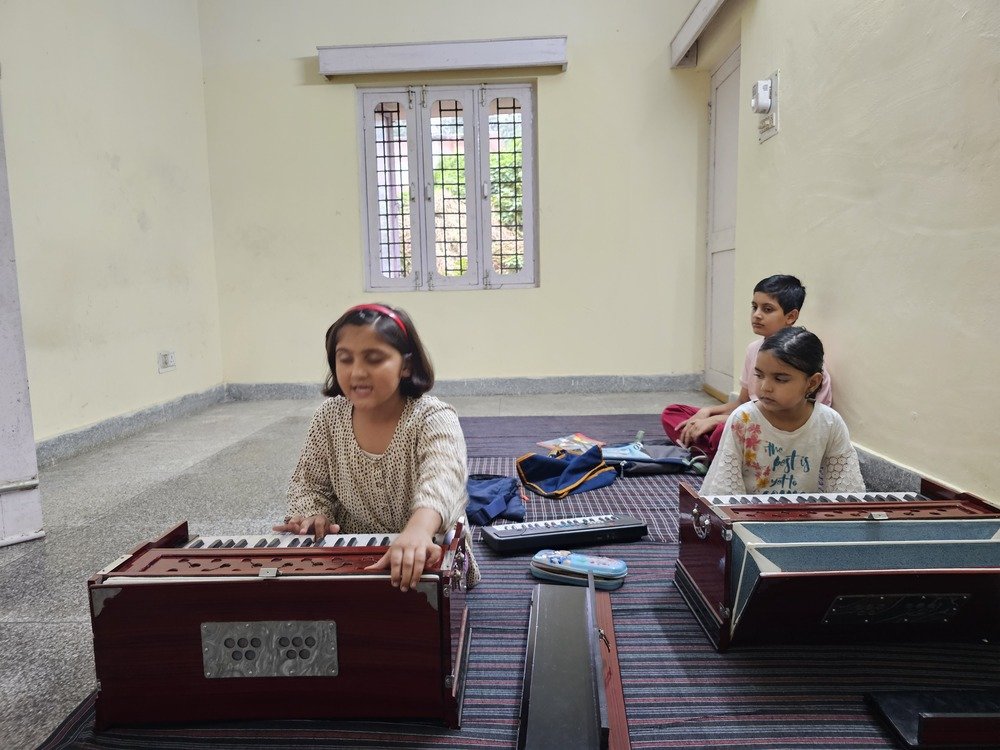We’ve all heard the saying, “Practice makes perfect,” especially when it comes to learning music. But is this really true? Can practicing enough help you become perfect at playing an instrument or singing? In this article, we’ll look at how practice affects your music skills and whether it can actually make you perfect.
What Happens When You Practice Music?
When you practice, your brain and body get better at doing the same thing over and over again. This is called neuroplasticity, which means your brain changes and improves its ability to do tasks, like playing the piano or singing.
Every time you practice, the brain’s connections get stronger, making it easier for you to remember and play music. This helps musicians become faster, more accurate, and better at controlling their movements, like pressing the right keys on a piano or hitting the correct notes while singing.
What Is Deliberate Practice?
Not all practice is the same. Sometimes, people play music without really focusing on what they’re doing. But the best way to improve is through something called deliberate practice. This means practicing with a clear goal in mind and focusing on areas where you need improvement.
For example, if a violinist struggles with a difficult part of a song, they’ll slow down and practice just that section until they can play it perfectly. A singer might work on breath control or hitting the high notes in a particular song. Deliberate practice is key to getting better because it focuses on fixing mistakes and improving specific skills.


Why Consistent Practice Matters
It’s not enough to practice once in a while. To really improve, musicians need to practice regularly—every day if possible. Even short practice sessions can help, as long as they are focused.
This is where muscle memory comes in. The more you practice, the more your body remembers the movements needed to play an instrument or sing a melody. Over time, these actions become automatic, so you don’t have to think about them. However, if you practice the wrong way, those mistakes can also become automatic, so it’s important to practice carefully.
Can Practice Lead to Perfection?
While practice helps us get much better, perfection in music is tricky. What sounds perfect to one person might not to someone else. Plus, music isn’t just about playing the right notes. It’s also about feeling and expression. So even if a piece is technically perfect, it may not sound “perfect” to everyone because music is also about emotion.
Also, even professional musicians make mistakes during live performances. The difference is that they know how to recover quickly and keep going without losing the flow of the music.
The 10,000-Hour Rule
You might have heard of the 10,000-hour rule, which says it takes about 10,000 hours of practice to become an expert at something, including music. This idea shows that becoming really good at music takes time and dedication.
For musicians, this rule reminds us that getting better is a long-term process. Whether you’re learning to play the guitar, piano, or any other instrument, it takes years of regular practice to become great.
Perfection may be out of reach, but every step forward is progress worth celebrating.
Why Rest Is Important Too
While practicing is essential, it’s also important to take breaks. Rest gives your brain and body time to recover and absorb what you’ve learned. Without rest, you can get burned out or even injured, like getting a sore throat from singing too much or hurting your hands from playing too long.
When you take breaks, you come back to your music refreshed and often with a clearer mind, which helps you improve even more.
Balancing Technique with Musicality
Being good at music isn’t just about playing every note correctly. Musicians also need to think about how to express the feelings and emotions in the music. This is called musicality. To get better at both, musicians should practice playing their instrument but also listen to music, study music theory, and learn how other musicians play.
Conclusion: Does Practice Make Perfect?
In the end, practice is the most important way to get better at music, but it doesn’t always make you perfect. Instead, practice helps you improve every day. While perfection may not be possible, you can always keep getting better and learn to express yourself through your music.

